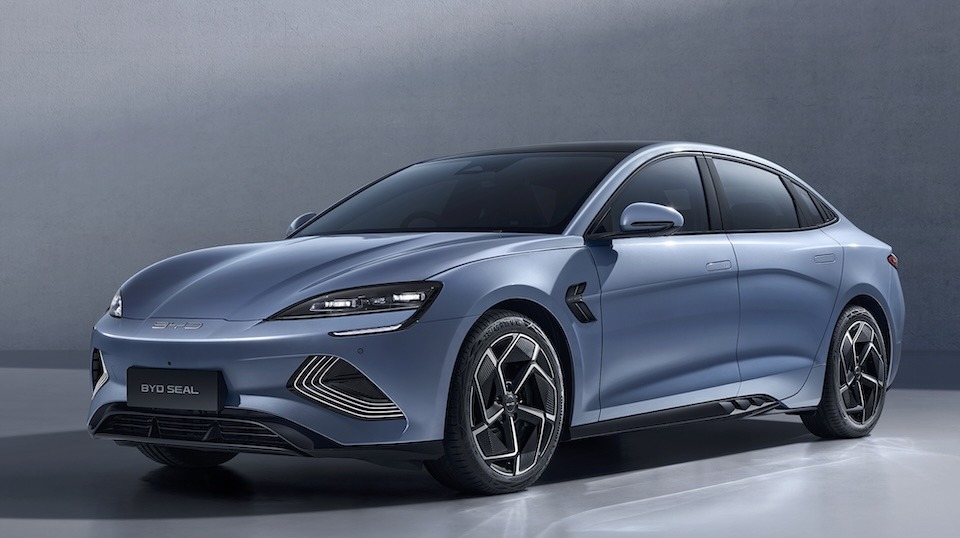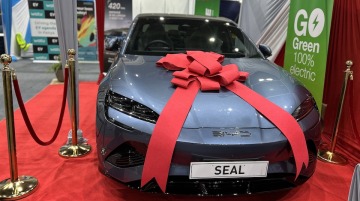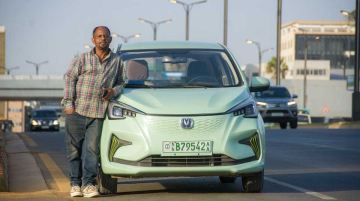
Faced with rising fuel costs, vehicle buyers in Kenya and Ethiopia are turning to affordable electric alternatives from Chinese manufacturers such as Changan, Neta, Wuling, and Xiaohu. These compact EVs, well-suited for taxi services and short-distance travel, are gaining ground as practical replacements for traditional internal combustion engine vehicles.
However, a fierce price war in China, sparked by Tesla and accelerated by market leader BYD, is now putting smaller electric vehicle makers at risk, a trend that could have significant consequences in emerging markets like Kenya, where the shift to electric mobility is still in its early stages.
Lei Xing, a veteran analyst of China’s auto industry and co-host of the China EVs & More Podcast, says the current electric vehicle price war is unprecedented not only in its intensity, but also in the fact that it has prompted rare warnings from Chinese regulators.
He adds that the price war began in early 2023 when Tesla initiated cuts, but BYD escalated it this year by rolling out steep discounts across its lineup. In May, BYD shocked the market by dropping prices again just months after its last reduction in January.
“This is unheard of,” Lei said. “We’re seeing cars with advanced features selling for prices that were unimaginable a few years ago.”
Since Ethiopia imposed a ban on the import of internal combustion engine vehicles in February 2024, demand for gasoline-powered cars has declined sharply.
Sarah Assefa, a journalist based in Addis Ababa who covers EV and climate change trends, observes a shift in the value of cars. She notes that owners who held onto their internal combustion engine (ICE) vehicles in the hope that they would appreciate are now being forced to sell them at the purchase price to avoid losses. In contrast, she says, electric vehicles are gaining value.
“When they (EVs) first started coming here and being introduced to the market, there weren’t many of them. At the same time, the importers were selling them at more affordable prices, but now, because demand is increasing, the price of these electric vehicles is increasing.”
Over the past five years, Chinese firms in Ethiopia have introduced both fully assembled and semi-assembled EVs to the market, while also building critical charging infrastructure. These companies are accelerating the adoption of electric vehicles.
But if the price war in China intensifies, a lot of the progress with EV adoption in East Africa could be at risk if buyers are left with unsupported cars, broken warranties, and mounting e-waste.
A Bloodbath for Small Players
The price war has already claimed casualties. Lei predicts that Chinese EV companies will have to consolidate more by merging their different brands. This will undoubtedly have downstream impact on several of the brands now operating in Africa.
“This (price war) won’t end until smaller players are driven out. Established brands like BYD, Great Wall Motors, and Geely will dominate, but for African countries, the risk is whether these smaller players will prioritize after-sales support.”
The African Dilemma: Cheap EVs vs. Long-Term Reliability
Sally Njogu, a brand strategist and EV analyst in Kenya posits that while affordability is a pressing issue, African governments that heavily rely on fuel taxes for revenue are not motivated to promote EV adoption. And even when offered, the incentives often fail to address the underlying issues of affordability and infrastructure development.
This means that unless things in African countries change, EV numbers risk remaining low due to the cost factor, which is driven up by taxes, as is the case in Kenya. In addition, those buying EVs will likely have no legal recourse if these Chinese brands collapse, as there is little in terms of structure to protect buyers in Kenya or other African countries.
While Njogu’s theory partially explains the low EV numbers in African countries, without local manufacturing or strong service networks, buyers remain vulnerable, and for this market, the lesson is that even though cheap EVs are tempting, durability and after-sales matter more.
As Lei puts it: “The winners won’t just be the cheapest. They’ll be the ones that build trust.”







